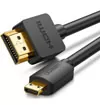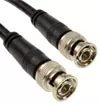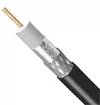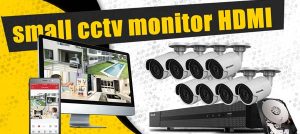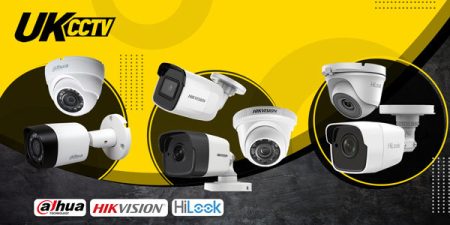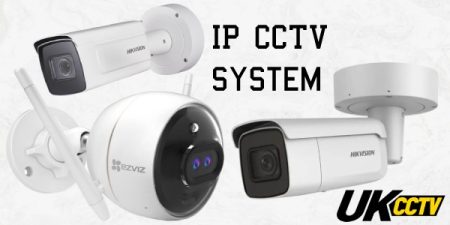NVR stands for Network Video Recorder, a device that acts as the hub of an IP-based surveillance camera system. It is a CCTV storage and verification point. Of course, this means you need a camera, usually a Power-over-Ethernet (POE) cable (see his guide to the best POE cameras (opens in new tab)) and at least one connected via hard drive. Our website has a variety of hikvision NVR recorders and other brands for you.
Advantage Of The NVR
An advantage of the NVR-based security system is the camera video compression, so local processing power is available for AI functions such as motion detection.
Key features to note are Power over Ethernet (POE), which can simplify cabling, hard drive capacity (if drives include), resolution limitations, number of channels or cameras that can be If you don’t have the means. 4K cameras consume more data throughput than 1080P cameras so the NVR can handle fewer data throughput. It is where the compression method (such as H.264 or H.265) can make a big difference.
How NVR CCTV System Works?
The NVR camera system consists of three parts: camera, network and NVR. Security Cameras: There are different types of security cameras on the market, including analogue cameras (generally considered obsolete technology due to their low resolution) and wireless Wi-Fi cameras (typically used for home security cameras, not for business purposes). System), etc. NVRs use in conjunction with IP security cameras. The Ethernet cable serves two purposes, powering the camera and transmitting data to his NVR, making the installation more accessible and flexible. POE IP cameras are generally of two types: bullet and dome cameras.
NVR recorder: The critical part of the NVR security camera system is the NVR itself which is not the camera. Some NVRs are devices that contain a hard drive. Others are cloud-based and use cloud storage and technology. However, all NVRs perform the same functions. Receive video footage over a network data connection and save the footage for later review. The NVR includes multiple Ethernet ports so that you can connect security cameras. For example, an 8-channel NVR recorder can support eight CCTV cameras.
Network Connection NVR: The IP security camera connects to the NVR via a wired or wireless connection. The camera is usually related to the NVR using an Ethernet cable for a wired connection.
How To View The Recorded Video On NVR?
Once the video from the IP camera reaches the NVR CCTV system, it can be stored online or offline and viewed remotely. Software accompanies the NVR device and typically includes camera system setup, onboarding, and display functionality for playback. However, NVR software alone is quite limited. Features like real-time alerts and search tools require an advanced video management system (VMS).
The Advanced VMS or Intelligent VMS (IVMS) can be a software component of the NVR or a standalone tool. The enhanced VMS has more features to help you get the most out of your camera system.
Difference Between DVR and NVR
The main difference between network video recorders (NVR) and digital video recorders (DVR) is how the raw video data is processed. DVRs convert analogue video to digital format, but NVRs typically only work with digital video. DVR systems process data on the recorder, while NVR systems encode and process data on the camera before forwarding it to the recorder for storage and remote viewing. DVRs connect to analogue CCTV systems via coaxial cables unless reconfigured, and NVRs connect to IP camera systems via Ethernet or Wi-Fi connections. Best DVR Security System article, get you more information about it.
DVR Recorder System
Analogue CCTV cameras: DVR systems typically use analogue security cameras. Cameras are the reason why DVR security systems are usually cheaper than NVR systems. Analogue cameras send signals to the recorder, which processes the video data. Compared with NVR systems, most DVR cameras are not complicated and expensive.
DVR Coaxial Cable
Analogue cameras are connected to the DVR via coaxial cable with a maximum length of 500 meters, which may have some limitations. The
Coaxial cable does not power the camera, unlike POE cables. It means you need two types of his lines, one for power and one for video transmission.
Coaxial cables are more expansive and stiffer than Ethernet cables and can be challenging to install.
Audio is a limitation because standard coaxial cable does not support audio transmission.
NVR Recorder System
IP CCTV camera: The NVR system uses IP cameras that can process the video data before it transfers to the recorder. IP cameras are typically more robust and can record and transmit audio in addition to images. Advanced hardware in IP cameras opens the door to intelligent video analytics such as license plates and facial recognition.

Ethernet Cable: If not wireless, IP cameras are usually connected to the recorder using an Ethernet cable. Although it can only run up to 100 meters, it has many advantages over coaxial cable.
Some camera solutions have a Power over Ethernet (POE) connection. It means only one cable is required to support power, video and audio. It eliminates the need for splitters commonly found in DVR systems. It’s essential to note that not all cameras with Ethernet connections are POE compatible. Many IP cameras require an Ethernet connection and a separate power supply. Due to its narrower profile, coaxial cable tends to be easier to set up, less expensive, and more readily available.
NVR CCTV system: The NVR recorder uses for video storage and displays only. It does not process video data. It is the step performed by the camera before the video data sends to the recorder.
Audio Support: Ethernet cables can transmit audio natively, so cameras with microphones on NVR systems can record audio on the NVR.
Higher storage capacity than the NVR camera system can upload the video to a cloud-based server. It is the benefit of being connected to the internet. Unlike DVR systems, they are not limited to on-site storage and can support higher capacities than DVR systems.
DVR or NVR, Which Is Better?
Essentially, both DVR and NVR record video footage on a hard drive. The differences between them are in their design and implementation, such as how they handle raw data, how they configure it, and which they are compatible with cameras.
DVR and NVR surveillance, generally considered to be more ‘traditional’ systems, can benefit. As technology advances, many organizations require more storage space, scalability, data security, ease of use, video analytics, and reliable remote access. Cloud and hybrid cloud solutions are modern alternatives to traditional systems.
Does NVR Need Internet?
When the NVR recorder is connected to a monitor and powered on, no internet connection is required to access the recorder’s security camera feed. The recorder doesn’t even need to connect to an external LAN. It is because the POE switch on most of his NVRs acts as its embedded network. The NVR has full access to anything directly connected to his POE switch. Please note that you cannot access his NVR or IP camera from your PC or mobile device if the NV does not relate to your local network. You can only access surveillance data from the NVR recorder itself.
Now, with the above information about NVR recorder systems, you can buy the best NVR CCTV system on ukcctv.com. Also, you can find the NVR recorder at a reasonable cost, with high quality and full of features.
How useful was this post?
Click on a star to rate it!
Average rating 0 / 5. Vote count: 0
No votes so far! Be the first to rate this post.



















